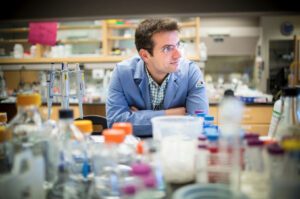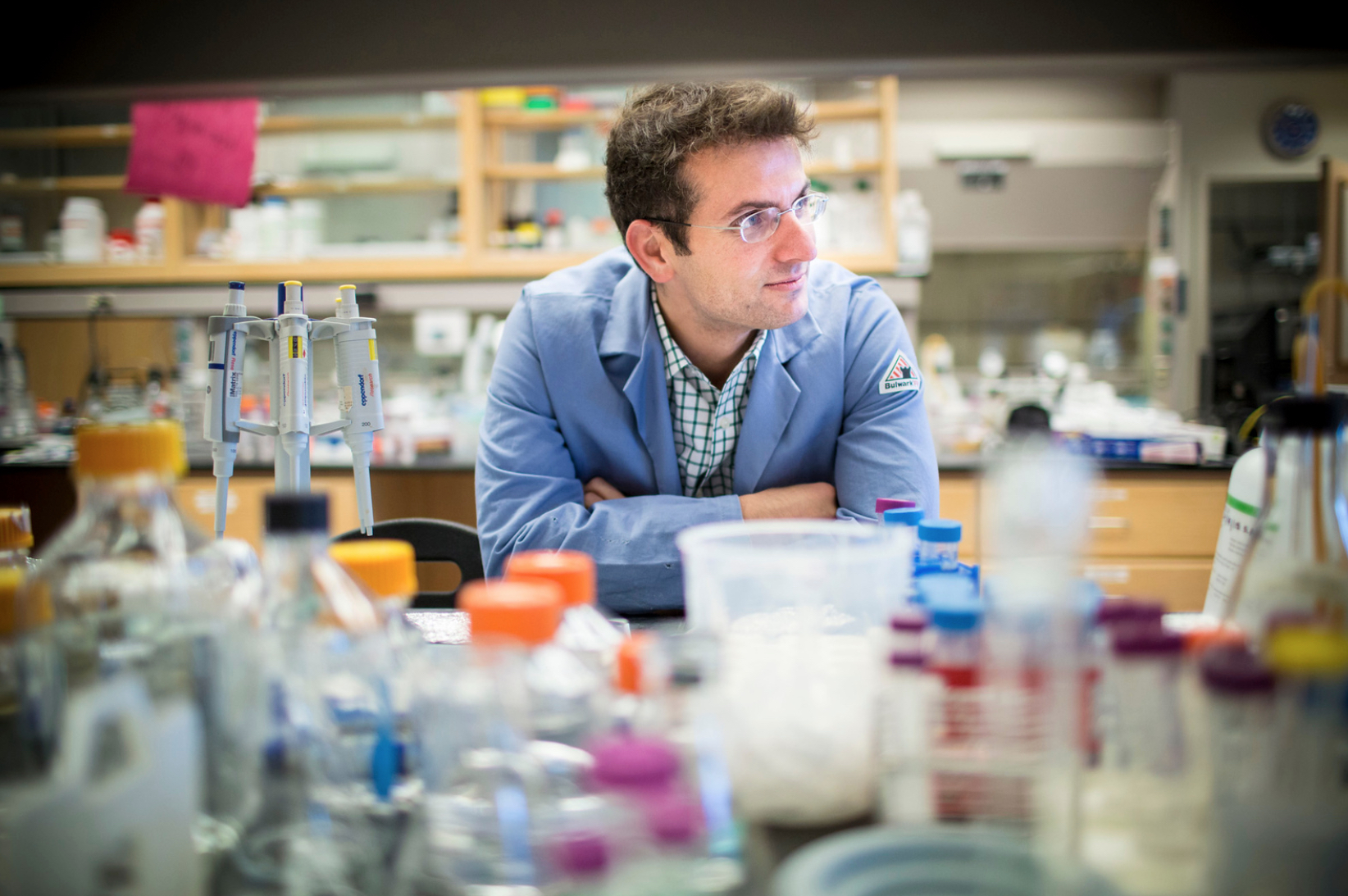
Frontiers in Nanotechnology Seminar Series Presents Khalid Salaita, Emory University
“DNA Mechanotechnology: nucleic acids that sense and generate molecular forces enable a new class of diagnostics“
 Modern machines, which are composed of force-generating motors, force sensors, and load-bearing structures, enabled the industrial revolution and are foundational to human civilization. Miniature micromachines are used in countless devices, including cell phone microphones, implantable biosensors, and car and airplane accelerometers. Further miniaturization to the nanometer scale would enable the design of machines that can manipulate biomolecules and other nanomaterials for applications in medicine, biological research, and material development.
Modern machines, which are composed of force-generating motors, force sensors, and load-bearing structures, enabled the industrial revolution and are foundational to human civilization. Miniature micromachines are used in countless devices, including cell phone microphones, implantable biosensors, and car and airplane accelerometers. Further miniaturization to the nanometer scale would enable the design of machines that can manipulate biomolecules and other nanomaterials for applications in medicine, biological research, and material development.
Such machines are typically difficult or impossible to build because of their small size. However, powerful synthetic methods to assemble and modify nucleic acids combined with single molecule force spectroscopy studies have propelled the emergence of a subfield called “DNA mechanotechnology”. DNA mechanotechnology is particularly well suited for measuring and controlling molecular forces at the scale of piconewtons (pN). For context, 10 pN is roughly one-billionth the weight of a paper clip, and ~4 pN applied a distance of 1 nm equals the work of 1 kT. Mechanical forces on this scale are important in diverse areas, including molecular biophysics, immunology, regenerative medicine, materials science, and nanorobotics.
In this talk, I will discuss my group’s efforts at using DNA mechanotechnology for new types of SARS-CoV-2 diagnostics and in biomedical applications.
Get to Know Khalid Salaita
Khalid Salaita is the Samuel Chandler Dobbs Professor of Chemistry at Emory University in Atlanta, Georgia (USA). Khalid grew up in Jordan and moved to the US in 1997 to pursue his undergraduate studies at Old Dominion University in Norfolk, Virginia (USA). As an undergraduate, he worked under the mentorship of Prof. Nancy Xu studying the spectroscopic properties of plasmonic nanoparticles. He next moved to Northwestern to start his Ph.D. under the mentorship of Prof. Chad Mirkin. During that time, he studied the electrochemical properties of organic adsorbates patterned onto gold films and developed massively parallel scanning probe lithography approaches.
From 2006-2009, Khalid was a postdoctoral scholar with Prof. Jay T. Groves at the University of California at Berkeley, where he investigated the role of receptor clustering in modulating cell signaling. In 2009, Khalid started his own lab at Emory University, where he pioneered the development of molecular force sensors, DNA mechanotechnology, smart therapeutics, and nanoscale mechanical actuators to manipulate living cells. In recognition of his independent work, Khalid has received a number of awards, most notably: the Alfred P. Sloan Research Fellowship, the Camille-Dreyfus Teacher Scholar Award, the National Science Foundation Early CAREER award, and the Kavli Fellowship. Khalid is currently a member of the Enabling Bioanalytical and Imaging Technologies (EBIT) study Section and an Associate Editor of SmartMat.
Khalid’s program has been supported by NSF, NIH, and DARPA.
Frontiers in Nanotechnology Seminar Series Presents Khalid Salaita, Emory University
- This event has passed.
